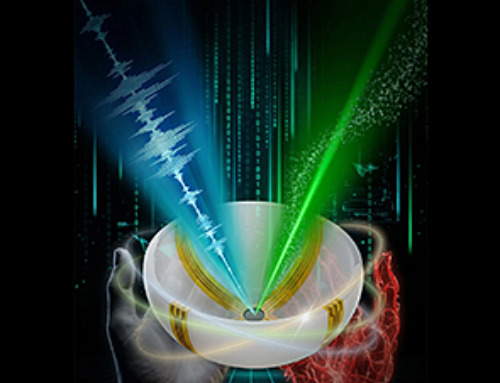A shingles shot may do more than prevent rash — it could help shield the aging brain from dementia, according to a landmark study using real-world data from the UK.
A routine vaccine could offer more than protection from varicella-zoster virus — it could help delay or prevent dementia, according to a robust natural experiment conducted by Stanford researchers and published in the journal Nature. In a recent study, a research team at Stanford University reported that the herpes zoster (shingles) vaccine may lower the risk of developing dementia, offering a potential new tool in the fight against cognitive decline.
Link between herpesviruses and dementia
For years, scientists have explored potential links between neurotropic herpesviruses and dementia. Some evidence suggests that infections caused by these viruses may contribute to neurodegeneration. While vaccination is commonly used to prevent infections, emerging research indicates that vaccines, especially live-attenuated ones, can have broader effects on the immune system, sometimes influencing conditions unrelated to the targeted disease.
However, previous studies examining the relationship between vaccines and dementia have struggled with a key challenge — distinguishing correlation from causation. Many have simply compared dementia rates between vaccinated and unvaccinated individuals, but this approach is prone to bias. Furthermore, factors such as personal health awareness, access to healthcare, and even cognitive ability can influence whether someone gets vaccinated, making it difficult to isolate the true effect of the vaccine.
About the study
In the present study, the researchers utilized the vaccine eligibility rules in Wales, United Kingdom (U.K.), to evaluate the impact of the herpes zoster vaccine on dementia risk. In the U.K., the eligibility for the herpes zoster vaccine was determined solely by birth date. Those born on or after September 2, 1933, were eligible to receive the vaccine, while those born just before this date were not.
This provided the researchers with a unique opportunity to study the vaccine’s effect on dementia risk, as individuals born just a few weeks apart are unlikely to differ in any meaningful way in other aspects of life, except for their access to the vaccine. This rare policy feature enabled researchers to apply a regression discontinuity design, simulating a natural experiment that is highly resistant to confounding. The authors also confirmed their findings using a difference-in-differences instrumental variable (DID-IV) approach, further reinforcing the robustness of their causal claims.
By analyzing large-scale electronic health records, the researchers could compare the long-term dementia risk between these two groups while minimizing confounding factors. The findings were corroborated in a secondary analysis of dementia-related deaths across England and Wales, further strengthening the causal inference. The study used regression discontinuity design, a statistical technique for determining causal relationships, and analyzed data from a seven-year follow-up period.
Major findings
The study found that receiving the herpes zoster vaccine was associated with a 3.5 percentage point reduction in dementia diagnoses over seven years, which translates to a 20% relative decrease. This estimate accounts for the fact that not all individuals who were eligible actually received the vaccine. The protective effect was stronger in women, reaching statistical significance, while the findings in men were inconclusive due to wider confidence intervals.
To confirm their findings, the researchers conducted a separate analysis using death certificate data. This secondary analysis supported their initial conclusions, showing that eligibility for the herpes zoster vaccine reduced dementia-related deaths by approximately 5% over nine years.
Beyond dementia, the study also confirmed that the vaccine significantly reduced the occurrence of shingles, consistent with clinical trial data. However, the observed reduction in dementia risk could not be fully explained by a decrease in shingles cases alone, suggesting that other mechanisms might be at play. Notably, the reduction in dementia incidence only became evident more than one year post-vaccination, supporting theories of long-term immune modulation.
The researchers explored several potential explanations for the vaccine’s apparent protective effect. One hypothesis was that the vaccine helps suppress reactivations of the varicella-zoster virus, which causes shingles. Some studies have suggested that such viral reactivations may contribute to neuroinflammation, a key factor in dementia development.
Another potential mechanism suggested a broader immune-modulating effect of the vaccine. Live-attenuated vaccines, like the herpes zoster vaccine, can stimulate the immune system in ways that extend beyond their primary target. This immune boost may help the body combat other infections or neuroinflammatory processes linked to dementia, potentially via mechanisms such as trained immunity or heterologous adaptive immunity. The study also explored how prior influenza vaccination and autoimmune conditions may modify the vaccine’s effect, supporting the hypothesis that broader immune modulation could contribute to dementia protection.
While these findings are compelling, the researchers acknowledged several limitations. One challenge was the potential under-detection of dementia in health records, as not all cases are formally diagnosed. The study also focused on a specific age group, making it difficult to apply the results to younger populations.
Another important consideration was that the study examined only the live-attenuated herpes zoster vaccine. Importantly, the study focused on the live-attenuated vaccine Zostavax, as the recombinant vaccine Shingrix was introduced only after the study period ended. It is unclear whether the newer vaccine would have the same effects on dementia risk.
Implications and conclusions
Dementia remains one of the most pressing public health challenges worldwide, with no cure currently available. If further research confirms that vaccines can reduce the risk of dementia, this could open up new avenues for prevention. If validated in other settings, the shingles vaccine could represent one of the most effective and cost-effective preventive strategies for dementia. Furthermore, given the widespread availability and safety profile of the herpes zoster vaccine, these findings suggest a promising, low-risk intervention that could potentially help millions of people.
While further research is needed to understand the exact mechanisms at play, this study provides compelling evidence that the herpes zoster vaccine may do more than just prevent shingles — it may also help protect the aging brain.
- Eyting, M., Xie, M., Michalik, F. et al. (2025). A natural experiment on the effect of herpes zoster vaccination on dementia. Nature. DOI:10.1038/s41586-025-08800-x https://www.nature.com/articles/s41586-025-08800-x
News
This Vaccine Stops Bird Flu Before It Reaches the Lungs
A new nasal spray vaccine could stop bird flu at the door — blocking infection, reducing spread, and helping head off the next pandemic. Since first appearing in the United States in 2014, H5N1 [...]
These two viruses may become the next public health threats, scientists say
Two emerging pathogens with animal origins—influenza D virus and canine coronavirus—have so far been quietly flying under the radar, but researchers warn conditions are ripe for the viruses to spread more widely among humans. [...]
COVID-19 viral fragments shown to target and kill specific immune cells
COVID-19 viral fragments shown to target and kill specific immune cells in UCLA-led study Clues about extreme cases and omicron’s effects come from a cross-disciplinary international research team New research shows that after the [...]
Smaller Than a Grain of Salt: Engineers Create the World’s Tiniest Wireless Brain Implant
A salt-grain-sized neural implant can record and transmit brain activity wirelessly for extended periods. Researchers at Cornell University, working with collaborators, have created an extremely small neural implant that can sit on a grain of [...]
Scientists Develop a New Way To See Inside the Human Body Using 3D Color Imaging
A newly developed imaging method blends ultrasound and photoacoustics to capture both tissue structure and blood-vessel function in 3D. By blending two powerful imaging methods, researchers from Caltech and USC have developed a new way to [...]
Brain waves could help paralyzed patients move again
People with spinal cord injuries often lose the ability to move their arms or legs. In many cases, the nerves in the limbs remain healthy, and the brain continues to function normally. The loss of [...]
Scientists Discover a New “Cleanup Hub” Inside the Human Brain
A newly identified lymphatic drainage pathway along the middle meningeal artery reveals how the human brain clears waste. How does the brain clear away waste? This task is handled by the brain’s lymphatic drainage [...]
New Drug Slashes Dangerous Blood Fats by Nearly 40% in First Human Trial
Scientists have found a way to fine-tune a central fat-control pathway in the liver, reducing harmful blood triglycerides while preserving beneficial cholesterol functions. When we eat, the body turns surplus calories into molecules called [...]
A Simple Brain Scan May Help Restore Movement After Paralysis
A brain cap and smart algorithms may one day help paralyzed patients turn thought into movement—no surgery required. People with spinal cord injuries often experience partial or complete loss of movement in their arms [...]
Plant Discovery Could Transform How Medicines Are Made
Scientists have uncovered an unexpected way plants make powerful chemicals, revealing hidden biological connections that could transform how medicines are discovered and produced. Plants produce protective chemicals called alkaloids as part of their natural [...]
Scientists Develop IV Therapy That Repairs the Brain After Stroke
New nanomaterial passes the blood-brain barrier to reduce damaging inflammation after the most common form of stroke. When someone experiences a stroke, doctors must quickly restore blood flow to the brain to prevent death. [...]
Analyzing Darwin’s specimens without opening 200-year-old jars
Scientists have successfully analyzed Charles Darwin's original specimens from his HMS Beagle voyage (1831 to 1836) to the Galapagos Islands. Remarkably, the specimens have been analyzed without opening their 200-year-old preservation jars. Examining 46 [...]
Scientists discover natural ‘brake’ that could stop harmful inflammation
Researchers at University College London (UCL) have uncovered a key mechanism that helps the body switch off inflammation—a breakthrough that could lead to new treatments for chronic diseases affecting millions worldwide. Inflammation is the [...]
A Forgotten Molecule Could Revive Failing Antifungal Drugs and Save Millions of Lives
Scientists have uncovered a way to make existing antifungal drugs work again against deadly, drug-resistant fungi. Fungal infections claim millions of lives worldwide each year, and current medical treatments are failing to keep pace. [...]
Scientists Trap Thyme’s Healing Power in Tiny Capsules
A new micro-encapsulation breakthrough could turn thyme’s powerful health benefits into safer, smarter nanodoses. Thyme extract is often praised for its wide range of health benefits, giving it a reputation as a natural medicinal [...]
Scientists Develop Spray-On Powder That Instantly Seals Life-Threatening Wounds
KAIST scientists have created a fast-acting, stable powder hemostat that stops bleeding in one second and could significantly improve survival in combat and emergency medicine. Severe blood loss remains the primary cause of death from [...]





















